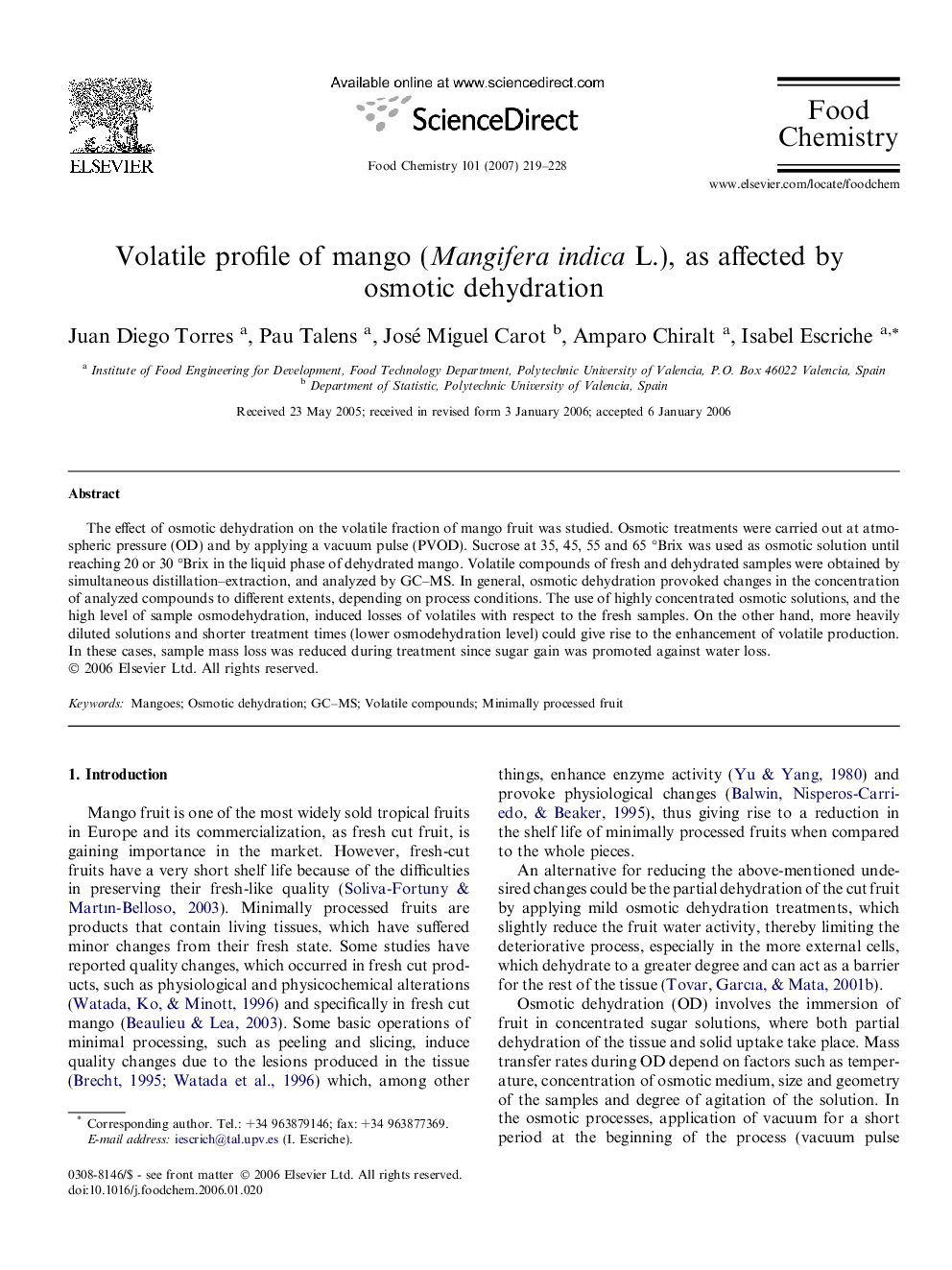| Article ID | Journal | Published Year | Pages | File Type |
|---|---|---|---|---|
| 1190549 | Food Chemistry | 2007 | 10 Pages |
The effect of osmotic dehydration on the volatile fraction of mango fruit was studied. Osmotic treatments were carried out at atmospheric pressure (OD) and by applying a vacuum pulse (PVOD). Sucrose at 35, 45, 55 and 65 °Brix was used as osmotic solution until reaching 20 or 30 °Brix in the liquid phase of dehydrated mango. Volatile compounds of fresh and dehydrated samples were obtained by simultaneous distillation–extraction, and analyzed by GC–MS. In general, osmotic dehydration provoked changes in the concentration of analyzed compounds to different extents, depending on process conditions. The use of highly concentrated osmotic solutions, and the high level of sample osmodehydration, induced losses of volatiles with respect to the fresh samples. On the other hand, more heavily diluted solutions and shorter treatment times (lower osmodehydration level) could give rise to the enhancement of volatile production. In these cases, sample mass loss was reduced during treatment since sugar gain was promoted against water loss.
